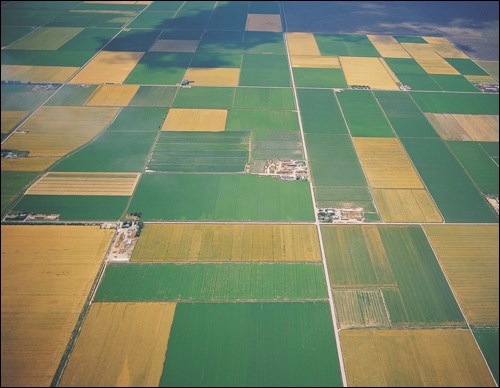Crops remain extremely stressed from the lack of moisture and continue to advance quickly due to the heat and dry conditions throughout the growing season. Many parts of the province saw a break in the heat with clouds and smoke from fires moving in, providing crops a slight reprieve from heat stress. Any rain received now will not help increase crop yield but it will help maintain yields through the heat.
Provincially, 51 per cent of fall cereals, 52 per cent of spring cereals, 50 per cent of oilseeds and 49 per cent of pulse crops are at their normal stages of development for this time of year. Many cereal crops that have headed out are not developing kernels and some producers have elected to cut these crops as greenfeed. There is a significant shortage of livestock feed, so we encourage producers to consider alternate uses for crops that will not develop.
Rainfall varied throughout the province this past week with many regions receiving from nil up to 75 mm. The Redvers area received of the most rainfall with 75 mm, the Kisbey and Stoughton areas received 34 mm and the Kindersley area received two mm.
Cropland topsoil moisture is rated as eight per cent adequate, 39 per cent short and 53 per cent very short. Hay and pasture land topsoil moisture is rated as six per cent adequate, 31 per cent short and 63 per cent very short.
Haying continues in the province with 22 per cent of hay crop cut and 61 per cent baled or put into silage. Hay quality is currently rated as eight per cent excellent, 51 per cent good, 32 per cent fair and nine per cent poor.
Hay yields are well below normal and most producers are unsure if a second cut will be possible this year. Low hay yields and quality are causing concerns over the amount of feed available to carry cattle over into the winter. Estimated average dryland hay yields at this time are 0.70 tons per acre for alfalfa and alfalfa/brome grass, 0.60 tons per acre for other tame hay and wild hay and one tonne per acre for greenfeed. Estimated average irrigated hay yields are 1.79 tons per acre for alfalfa, 1.67 tons per acre for alfalfa/bromegrass and 1.23 tons per acre for greenfeed.
Crop damage this week was attributed to localized hail, strong winds, lack of moisture, heat and grasshoppers. Many producers are assessing the benefit of spraying for grasshoppers in fields that are very poor in condition and are considering cutting them as greenfeed.
Farmers are busy haying, doing yield assessments through SCIC, researching their options around water infrastructure and some have already begun prepping their harvesting equipment.
In response to the feed shortage this year, Saskatchewan Crop Insurance Corporation is doubling the Low Yield Appraisal threshold values for customers who salvage their cereal or pulse crops as feed, without negatively impacting future individual coverage. Customers are asked to contact their local SCIC office before they graze, bale or silage any damaged crops to discuss their options. Additionally, the Government of Saskatchewan is making changes to temporarily increase the maximum funding a livestock producer can receive from the Farm and Ranch Water Infrastructure Program (FRWIP) for dugouts, wells and pipelines for agricultural use. This change will be in effect for the April 1, 2021 to March 31, 2022, time period. The maximum rebate for livestock producers during this time period will increase from $50,000 to $150,000. The first $50,000 will be based on a 50-50 cost-share and the remaining $100,000 will be on a 70-30 government-producer cost-share. Producers can contact the Agriculture Knowledge Centre at 1-866-457-2377 for more information.
A complete, printable version of the Crop Report is available online at https://www.saskatchewan.ca/crop-report.
Follow the 2021 Crop Report on Twitter at @SKAgriculture.




